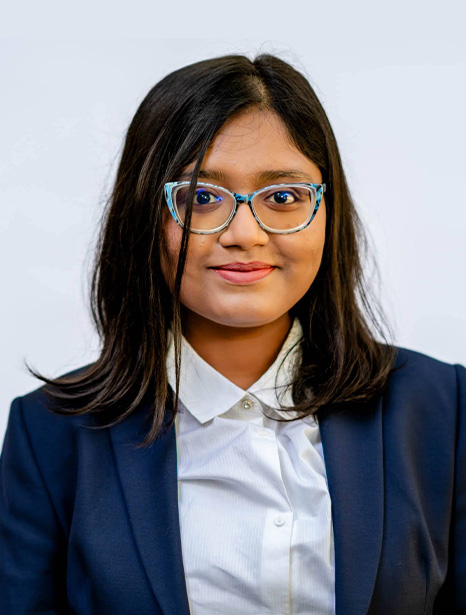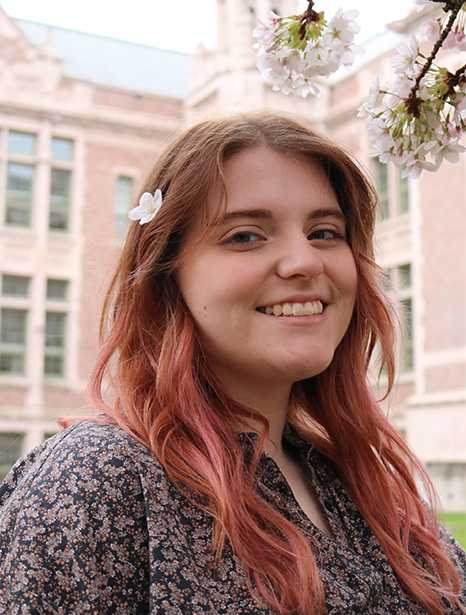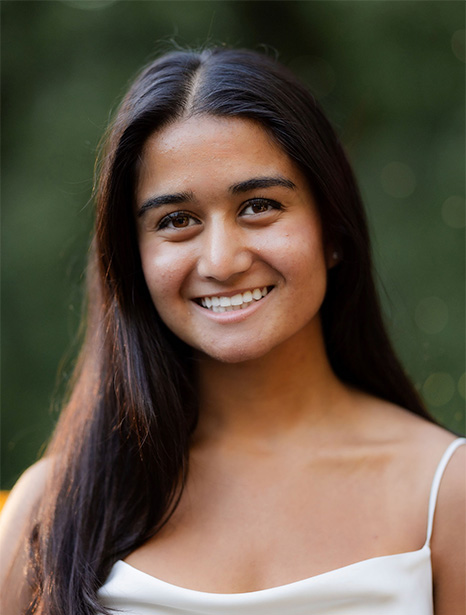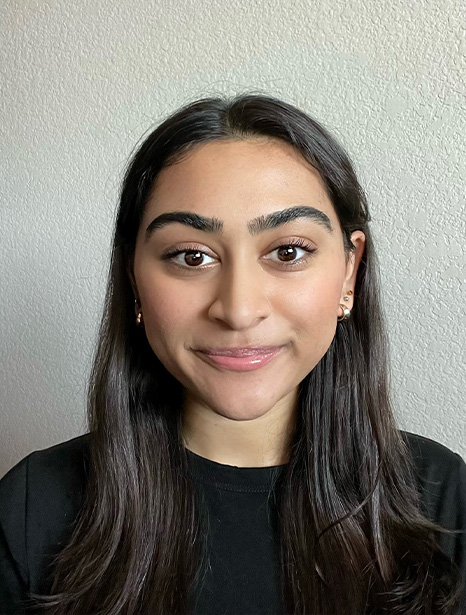News & Insights
Celebrating Trainee Achievements and Announcing New Grants

In September 2023, the Dana NextGen program launched its first call for professional development award applications. The awards provide undergraduates, graduate students, and postdoctoral researchers with funding to explore interdisciplinary opportunities that connect neuroscience with fields outside of the natural sciences and engineering—such as ethics, social sciences, journalism, and beyond. In this article, we highlight four trainees who were selected as award recipients in the inaugural cycle. Read on to the end of this story to learn more about current funding available for trainees interested in neuroscience and society.


Integrating Diverse Stakeholder Perspectives in Neural Device Innovation
Marzia Momin is a Ph.D. candidate at The Pennsylvania State University’s department of engineering science and mechanics. Her research focuses on designing and developing customized neural devices for recording and stimulating neural activity, with the goal of advancing precision and personalization in neurological treatment.
With the support of the Dana Foundation’s professional development award, she attended the 2024 International Neuroethics Society (INS) Annual Meeting in Baltimore, Maryland, and enrolled in a neuroethics course led by Laura Cabrera, Ph.D., the Dorothy Foehr Huck and J. Lloyd Huck Chair in Neuroethics at Penn State.
At the conference, Momin connected not only with neuroscience researchers, but also lawyers, FDA representatives, clinical therapists, and lived-experience advocates. Attending the INS meeting, along with continuing her coursework, deepened her understanding of the importance of integrating diverse perspectives and patient needs when developing neural technologies (an idea explored in a recent episode of NeuroSociety Stories with Jen French).
Recently, Momin was selected for the National Science Foundation’s Innovation Corps national program, where she is refining her entrepreneurial skills to translate innovative technologies from the lab to real-world applications. Looking to the future, she is committed to addressing the societal and ethical implications of neuroscience technologies to promote sustainable healthcare outcomes and responsible innovation.


Centering Equity and Justice in Brain Organoid Ethics and Research
Zoë Hale is a Research Assistant in the Transformative Investigations in Medical Bioethics Research (TIMBR) Lab at the University of Washington School of Medicine. Hale utilized award funding to present a poster at the INS Annual Meeting on her research analyzing informed consent forms used in brain organoid studies. Additionally, she participated in the Allen Institute’s 2024 Human and Mammalian Brain Atlas (HMBA) Consortium Meeting in Amsterdam.
Hale is an active member of the HMBA Neuroethics Working Group and Neuroethics Advisory Board, and attending the consortium meeting allowed her to continue discussions focused on achieving representative sampling in brain organoid research, refining equitable recruitment practices and data sharing, and translating research to benefit historically marginalized populations.
Currently, she is conducting a qualitative interview project examining the perspectives of hospice and palliative care workers on whole brain donation under the supervision of Timothy Brown, Ph.D., a philosopher and neuroethicist at the University of Washington.


Communicating Neuroethics to the General Public
Sofia Schwarzwalder and Esha Patel are both undergraduates at the University of Washington, where they are studying journalism and philosophy, and neuroscience, respectively. Combining Schwarzwalder’s journalism expertise as news editor at The Daily (UW’s student-run newspaper) and Patel’s skills in marketing and scientific communication as an editor at Grey Matters (an undergraduate neuroscience research journal), they are creating accessible, public-facing articles based on research presented at the 2024 INS meeting, which they were able to attend thanks to the professional development award funding.


After interviewing experts at the INS meeting in Baltimore, Schwarzwalder and Patel are creating summary articles to bridge the gap between high-level academic research and the general public, addressing the need for “jargon-free” media in the neuroethics field. They also reflected on the conference as an opportunity for authentic, in-depth conversations with interdisciplinary experts, learning about how their personal journeys have inspired and been inspired by the work of others.
New NextGen Funding Opportunities
We are excited to announce that the NextGen program is once again accepting applications for the professional development awards this year. Trainees may request up to $5,000 USD to attend a conference or workshop, pursue coursework, or participate in other interdisciplinary activities that further their training in neuroscience and society beyond existing experiences. To be eligible, applicants must be affiliated with an academic or non-profit institution in the United States; additionally, applicants must currently be enrolled in a training program or employed by a non-profit as an undergraduate, post-baccalaureate, graduate, or post-doctoral trainee.
While reviewing past applications for the professional development awards in 2023, our team observed a significant need among trainees for seed funding to conduct research projects focused on neuroscience and society. In response, we are excited to announce a new, additional funding opportunity: the Trainee Research Awards.
Graduate students and postdoctoral trainees may request up to $15,000 USD to support research projects such as surveys, focus group interviews, case law reviews, policy analyses, systematic reviews, and more (not an exhaustive list). We look forward to seeing the impactful research that emerges from this new initiative.
The Foundation will host a virtual information session regarding both of these funding opportunities on February 5, 2025, at 5 pm Eastern Time. Register here to receive the Zoom meeting details.
The application deadline for both the professional development awards and trainee research awards is March 14, 2025, at 11:59 pm (ET).



